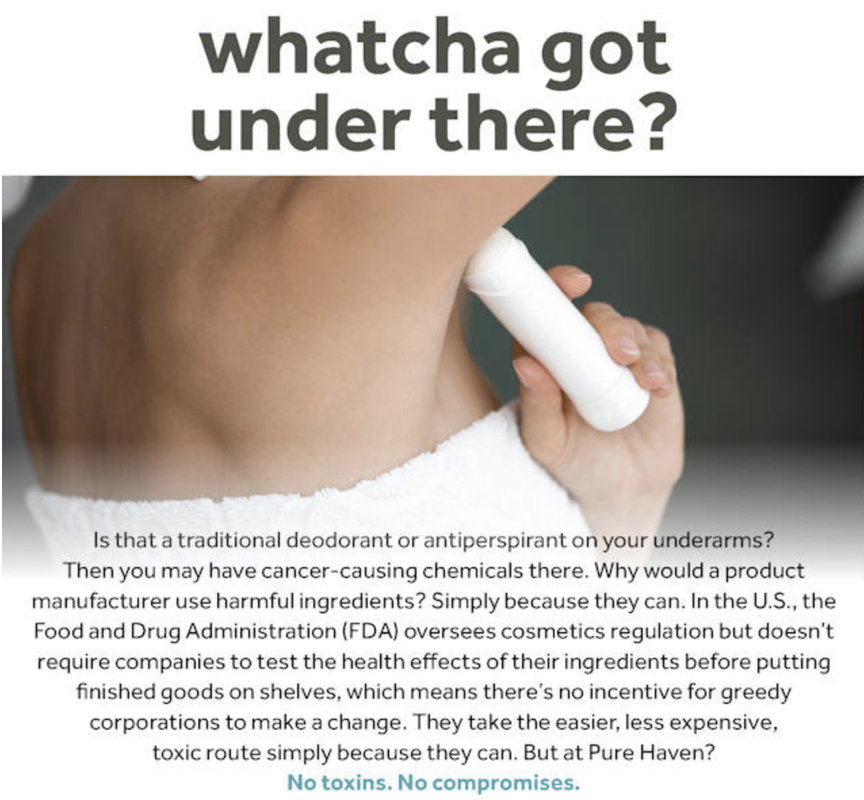|
Worried about the potential risks associated with the ingredients in your deodorant? You would think that if a product is sold in a store, it’s passed some kind of safety test to be there; that someone, somewhere is looking out for us. Turns out, not really.
The Food and Drug Administration (the FDA) is the U.S. agency that technically oversees the cosmetics industry (which includes personal care products like deodorant, shampoo and conditioner, body washes and lotions, toothpaste, and more – you know, all the products you apply and reapply daily or more often throughout the course of your entire life). However, the FDA merely sets limits on certain potentially dangerous ingredients but doesn’t ban them. The FDA’s oversight of the industry is made up of voluntary regulations and good manufacturing practices (GMP) guidelines that manufacturers aren’t required to comply with. And when they’re not required, they generally don’t. Protect yourself by learning the toxic truth about traditional deodorants. Truth: Aluminum is used in deodorants to block sweat glands and reduce sweating. Because aluminum can mimic estrogen, which has been linked to an increased risk for certain types of breast cancer, it may also increase the risk of developing breast cancer. Truth: Benzene, a cancer-causing agent, is used as a propellant in aerosol products, including aerosol spray deodorants. To avoid this ingredient, a good rule to follow is to simply avoid aerosol products. Truth: Fragrance merely masks odors and may contain hormone disruptors that can build up over time. Any product containing fragrance, including deodorant, exposes you to untold toxic chemicals, since fragrance is protected by a legal loophole that allows manufacturers to claim it as a trade secret. Truth: Parabens are used to inhibit bacterial growth and extend shelf life. These known hormone disruptors can affect fertility hormones and exposure has been linked to breast cancer risk. Truth: Phthalates are common preservatives and components of fragrance that can interfere with hormone production and disrupt normal development processes. Long-term exposure has been found to increase the risk of certain types of reproductive system abnormalities in male fetuses, as well as other systemic health problems like diabetes and asthma in adults. Truth: Triclosan is an antimicrobial chemical that can temporarily reduce odor by killing off bacteria on skin’s surface, but long-term exposure has been linked with endocrine disruption that can result in disrupted menstrual cycles and lower testosterone levels. During the month of October 2023, in honor of breast cancer awareness month and domestic violence awareness month, for each Pure Haven deodorant purchased at full price, we’ll donate one to help a victim of domestic violence. If you are ready to order products that are amazing and toxic free... shop www.purehaven.com/jschumacher #toxicfree #toxicfreeliving #purehaven #notoxins #nocompromises
0 Comments
Leave a Reply. |
AuthorWrite something about yourself. No need to be fancy, just an overview. Archives
December 2023
Categories |

 RSS Feed
RSS Feed
